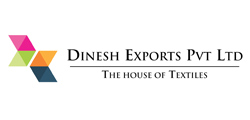The pursuit of sustainability extends beyond eco-friendly materials and production processes to include ethical considerations such as labor costing. Sustainable labor costing is an integral part of ensuring fair treatment for workers, promoting social responsibility, and fostering a more equitable fashion industry. In this comprehensive guide, we’ll delve into the importance of sustainable labor costing in fashion manufacturing, explore its key components, and discuss strategies for integrating ethical practices into labor costing processes to create a more sustainable and socially responsible supply chain.
Fair Wages and Working Conditions
At the heart of sustainable labor costing is the commitment to upholding fair wages and working conditions for garment workers. This involves accurately calculating labor costs using popular costing methods such as:
Piece Rate: Paying workers based on the number of pieces they produce, ensuring transparency and incentivizing productivity.
Hourly Rate: Compensating workers for the hours worked, with provisions for overtime pay and adherence to minimum wage laws.
Standard Time Measurement: Utilizing predetermined time standards to calculate labor costs, accounting for variations in task complexity and worker skill levels.
These methods enable fashion brands to ensure that workers receive compensation that meets or exceeds living wage standards, while also prioritizing safe working environments, adequate rest breaks, and reasonable working hours to protect worker well-being.
Promoting Transparency and Accountability
Transparency and accountability are essential principles in sustainable labor costing. Fashion brands and manufacturers must be transparent about their labor costing practices, including how wages are calculated, what deductions are made, and how workers’ rights are protected. Moreover, they should be held accountable for ensuring that labor costing processes adhere to ethical standards and legal requirements, with mechanisms in place for monitoring and reporting on labor practices.
Corporate Social Responsibility
Sustainable labor costing goes beyond simply minimizing costs; it encompasses a broader commitment to social responsibility. This includes considering the social impact of labor practices on workers, communities, and society as a whole. By integrating social responsibility into labor costing processes, fashion brands can prioritize the well-being of workers, support local economies, and contribute to positive social change.
Supply Chain Compliance
Another crucial aspect of sustainable labor costing is ensuring supply chain compliance with labor standards and regulations. This involves conducting regular audits and inspections to assess working conditions, labor practices, and compliance with legal requirements such as minimum wage laws, overtime regulations, and child labor prohibitions. Brands and manufacturers must take proactive measures to address any violations and implement corrective actions to improve labor practices.
Collaboration Across Industry
Achieving sustainable labor costing requires collaboration and collective action across the fashion industry. Brands, manufacturers, suppliers, and stakeholders must work together to share best practices, develop industry standards, and advocate for policies that support fair labor practices. By joining forces, the fashion industry can drive positive change, empower workers, and create a more sustainable and socially responsible supply chain.
Conclusion
Sustainable labor costing is a critical component of ethical fashion manufacturing, ensuring that workers are treated fairly, wages are equitable, and working conditions are safe. By upholding principles of transparency, accountability, social responsibility, and supply chain compliance, fashion brands can integrate ethical practices into labor costing processes and promote a more sustainable and socially responsible fashion industry. Together, we can work towards a future where every garment is made with integrity, dignity, and respect for all workers involved in the production process. If you are looking for a reliable woven fabric manufacturer, please contact us.



